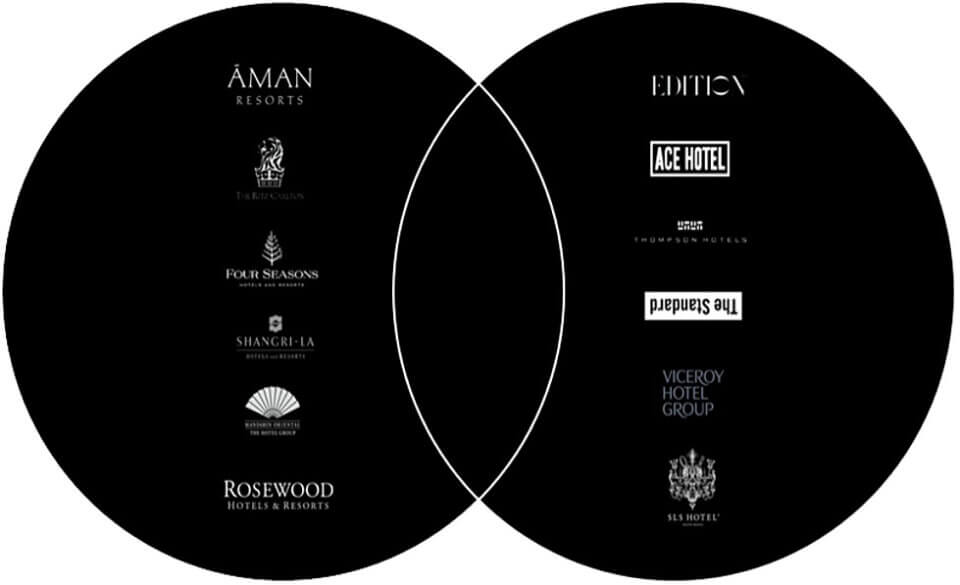Boutique or “lifestyle” hotels were first conceptualized as something different from the standard, institutionalized hotels. Lifestyle hotels are known for providing a unique guest experience largely driven by a strong sense of design excitement, lively entertainment and trendy food and beverage offerings. I like to call all of this “hospitainment.”
Ian Schrager is considered the father of the boutique hotel and his vision was to create a space that was more than just a place to sleep, a destination and a lifestyle experience. Ian’s early creations were also referred to as the “anti-brand brand” as each of his hotels stood out as unique stand-alone experiences. Something different is what a lifestyle product offered travelers. The stand-alone model of the boutique hotel eventually evolved into a more institutional model through Barry Sternlicht’s creation of the first global lifestyle brand, W Hotels.
Today, whether traveling on a budget or looking for an “experiential hotel,” all the major global lodging companies have a lifestyle product to offer, with perhaps the exception of the true 5-star hotels and resort brands. In looking at the Venn Diagram below, on the right side of the spectrum are many well-known lifestyle brands and on the left end of the spectrum are the top-tier luxury brands. However, who is filling the void between top service and lifestyle? There is a huge opportunity to create a product offering, which meets at the intersection of the two. Life-style and “branded” hotels do not need to be oximorphic.

To deliver a high-end lifestyle hotel, best-in-class customer service found at the premier branded hotels around the globe must be married with the “hospitainment” and excitement of the boutique hotel industry to create a new genre of luxury boutique lifestyle hotels. Brands have an opportunity to offer beautifully designed hotels with independent personalities, and still provide guests with top-notch service they expect at five-star hotels. The younger travelers who enjoyed the early incarnation of the lifestyle hotel have matured, with many being high-end customers that can afford the increased level of service and expanded on-site amenities found at the Four Seasons and Aman-type hotels and resorts. In addition, brands should take into consideration the young, affluent discerning Gen Xers and what those travelers may appreciate and consider when staying at luxury boutique lifestyle hotels.
Beyond just upping the service game, can we re-think the whole idea of service? How will life-style hotels serve the next generation customer? Top-tier service today goes beyond just the expectation of a clean room, turn-down service and timely guest need reactions. What will differentiate the definition of service as we embark to re-create the lifestyle hotel. I think a turn-key approach to travel and making the entire guest travel experience easier will be key to this definition. Imagine a hotel stay where everything is all set up from the minute you land. All your favorite restaurants are booked, your favorite foods and snacks are stocked in the room, and your stay is professionally managed from beginning to end. Sure, every hotel as a concierge, but can the next generation of lifestyle hotels create a more personalized concierge approach to travel.
Just like Ian and Barry were the visionaries for the creation and institutionalization of the lifestyle hotel, the opportunity now exists for the next visionary to marry the top-notch service with “hospitainment” and create the next generation of high-end luxury, lifestyle brands!
Jeffrey Davis is senior managing director/co-head of U.S. hotel investments with JLL.
This is a contributed piece to Hotel Business, authored by an industry professional. The thoughts expressed are the perspective of the bylined individual.



